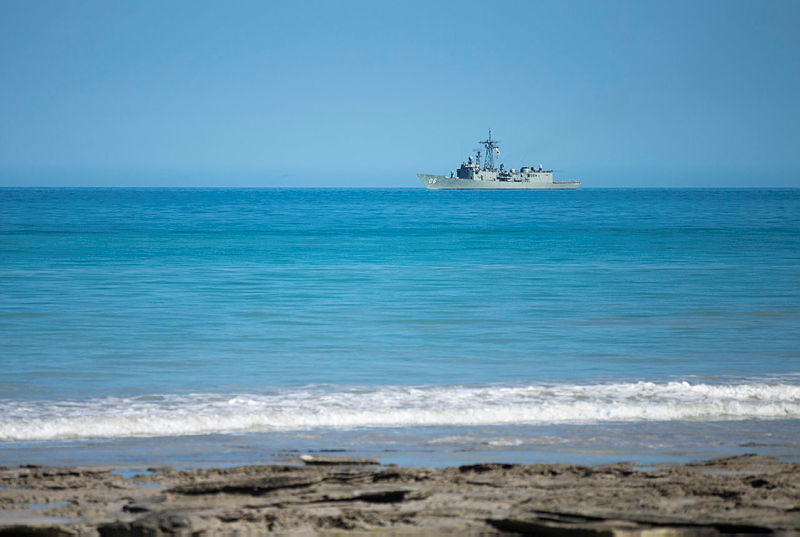
The strategic importance of northern Australia to our national security has long been recognised by successive governments, but policymakers have struggled to develop a coherent long-term plan for the defence of the north.
Until recently, there hasn’t been any real urgency to getting our defence thinking about northern Australia right. During the Cold War, Australia was a half a world away from superpower competition. And ever since the release of Paul Dibb’s 1986 review of defence capabilities, defence strategists have largely assumed that, should the defence of northern Australia ever become a national priority, we would have a decade or more to address the problem.
Unfortunately, as Australia’s strategic outlook becomes more uncertain in a new era of great-power competition, we now have to think about the defence of the north in a more deliberate and urgent fashion.
Over the last decade, the gap between the strategic policy vision outlined in successive defence white papers and the Australian Defence Force’s actual presence in the north has widened.
If our industry and logistics base across northern Australia can’t easily be scaled up in a crisis, the ADF may not be able to defend our northern approaches or conduct joint expeditionary operations in our neighbourhood at short notice.
Piecemeal Defence investments in the north may have their benefits but they don’t provide a sufficient foundation for rapid military escalation should changing circumstances dictate.
Because of the significantly reduced warning times for future conflict, it’s likely that northern Australia will increasingly become either the ADF’s forward operating base (FOB) or its springboard to another location in the Indo-Pacific.
In my report Strong and free? The future security of Australia’s north, released today, I argue that there’s a need to rethink the importance of northern Australia, defined as those areas north of the 26th parallel south, as a single, scalable defence and national security ecosystem.
Titled ‘FOB North’, this network could be developed to deliver integrated support to current and future ADF and national security operations. Traditionally, an FOB is a small, usually temporary, base that provides tactical support in an operational theatre. In the context of this report, FOB North conceives of the north of Australia and its defence infrastructure as being in a state of readiness to support a range of defence contingencies of which we may have little advance warning.
Northern Australia’s industrial and logistical base will need to be enhanced to be able to provide a permanent civilianised replenishment and depot-repair capacity for defence assets deployed across the various physical nodes of FOB North.
For Australia’s future defence force, much of the thinking to date has been concerned with capability choices, manufacturing and deep maintenance.
The next step must set in place the facilities and resources needed to sustain those capabilities in the north during their deployments. Darwin and Royal Australian Air Force Base Tindal would need to become critical nodes in global defence supply chains for such capabilities as the RAAF’s F-35 jets. These preparations will also require federal, state and territory government investment in ‘Industry 4.0’ capacity in northern Australia.
To succeed, the FOB North concept must be a key element of Australia’s broader national security strategy.
ADF and other national security activities must be closely linked and mutually supporting within an FOB North strategy, and Home Affairs and intelligence agencies should also be integrated within it.
One of the biggest stumbling blocks in achieving FOB North is money. The creation of FOB North would require investment, though that shouldn’t be viewed simplistically through a defence lens. Rather, the entire strategy should be based on a cost-sharing arrangement within a national investment plan across both the public and private sectors.
The FOB North concept would provide policymakers with a foundation for thinking of the north as a facilitator of engagement with the region. FOB North will make the north of Australia a vehicle for regional defence and security, rather than defence from the region.
The development of FOB North needs to be part of, and supported by, Australia’s sovereign nation-building efforts. As both a sovereign defence and a national security concept, FOB North would play an integral part in building national resilience in northern Australia. It shouldn’t be simply planned and delivered through a future defence white paper.
This kind of ambitious national approach will involve Defence working with a diverse array of stakeholders and partners. It will also allow Defence to make a significant and lasting contribution to its most basic strategic interest: a secure, resilient Australia.

